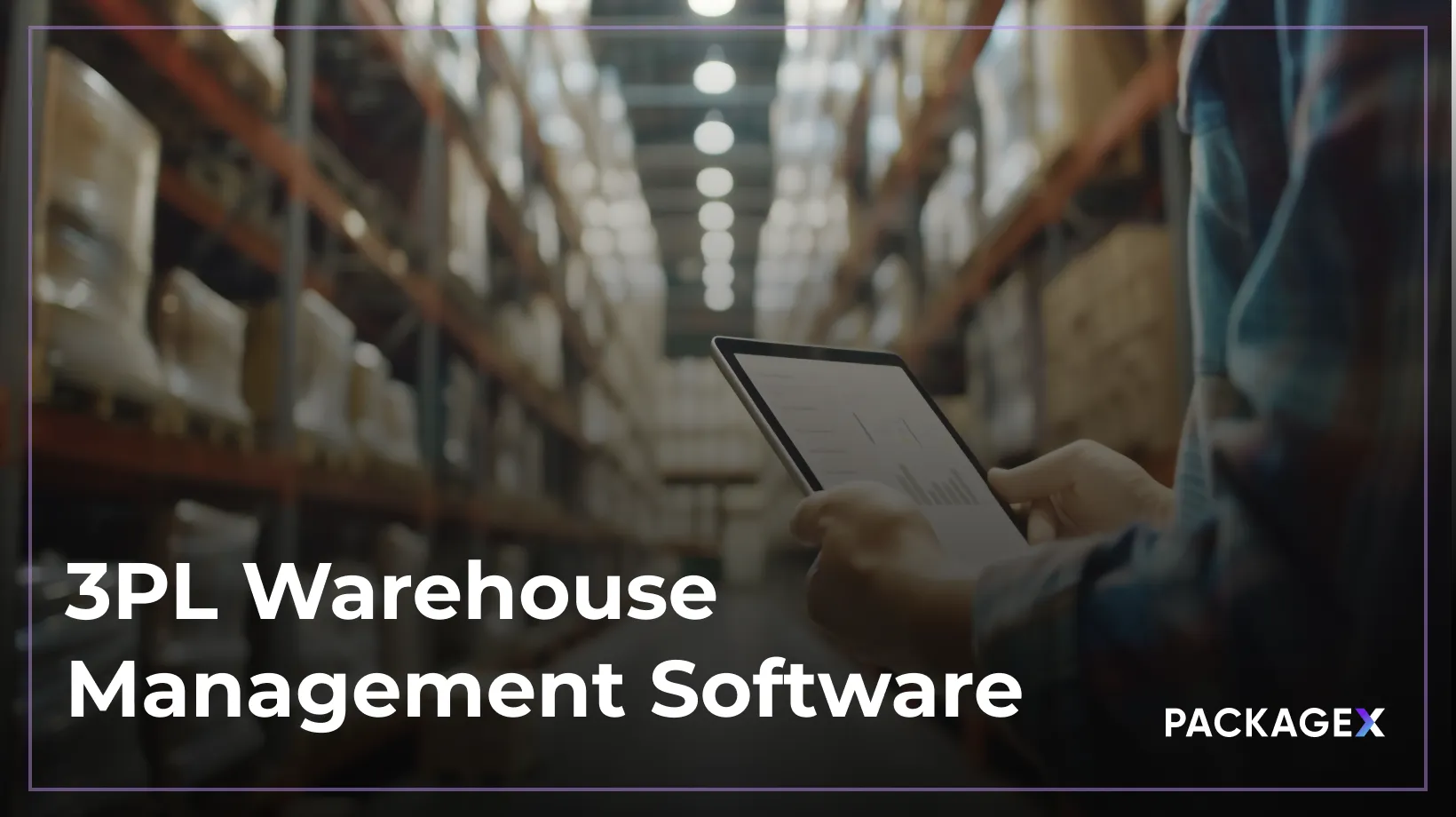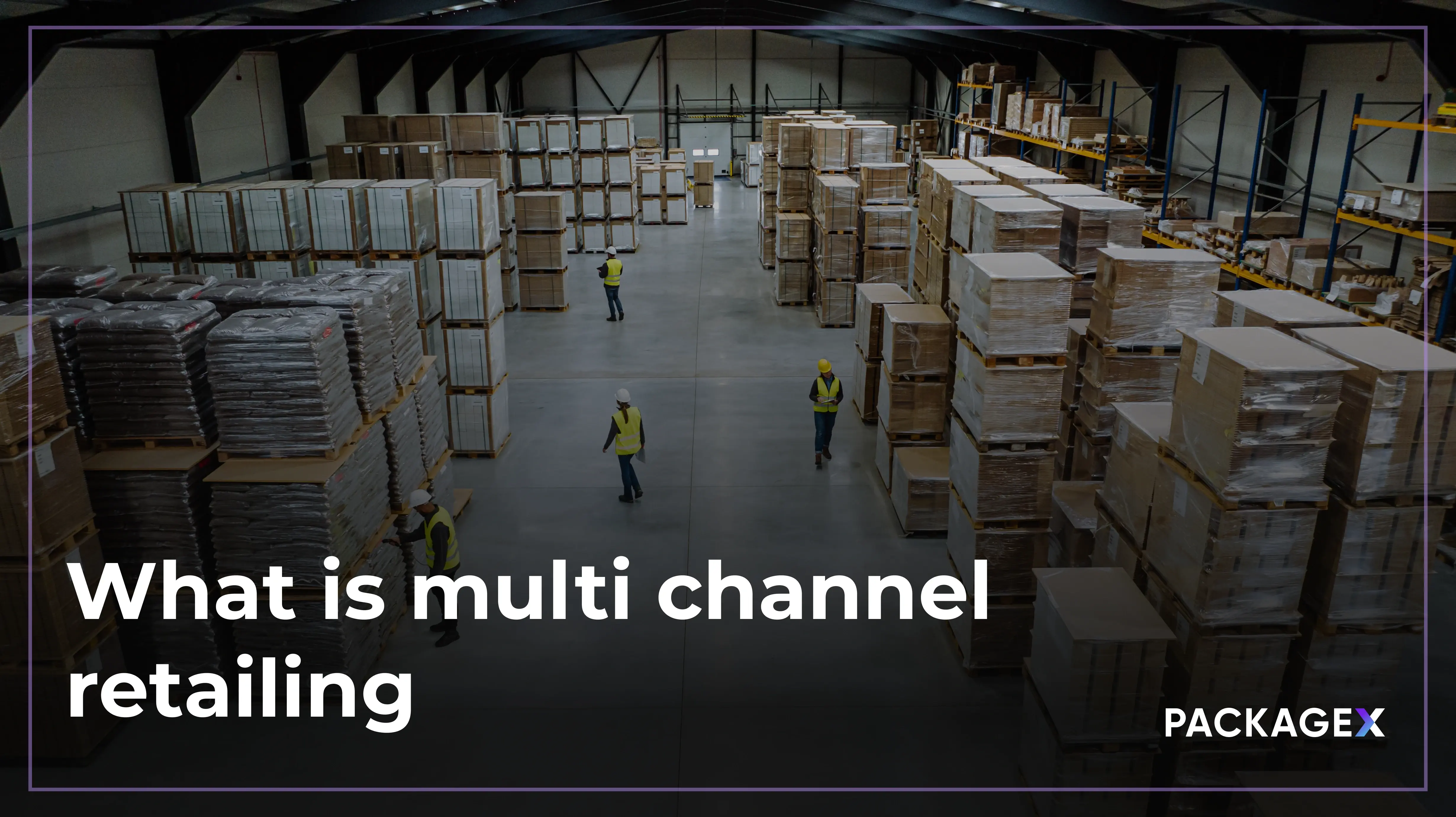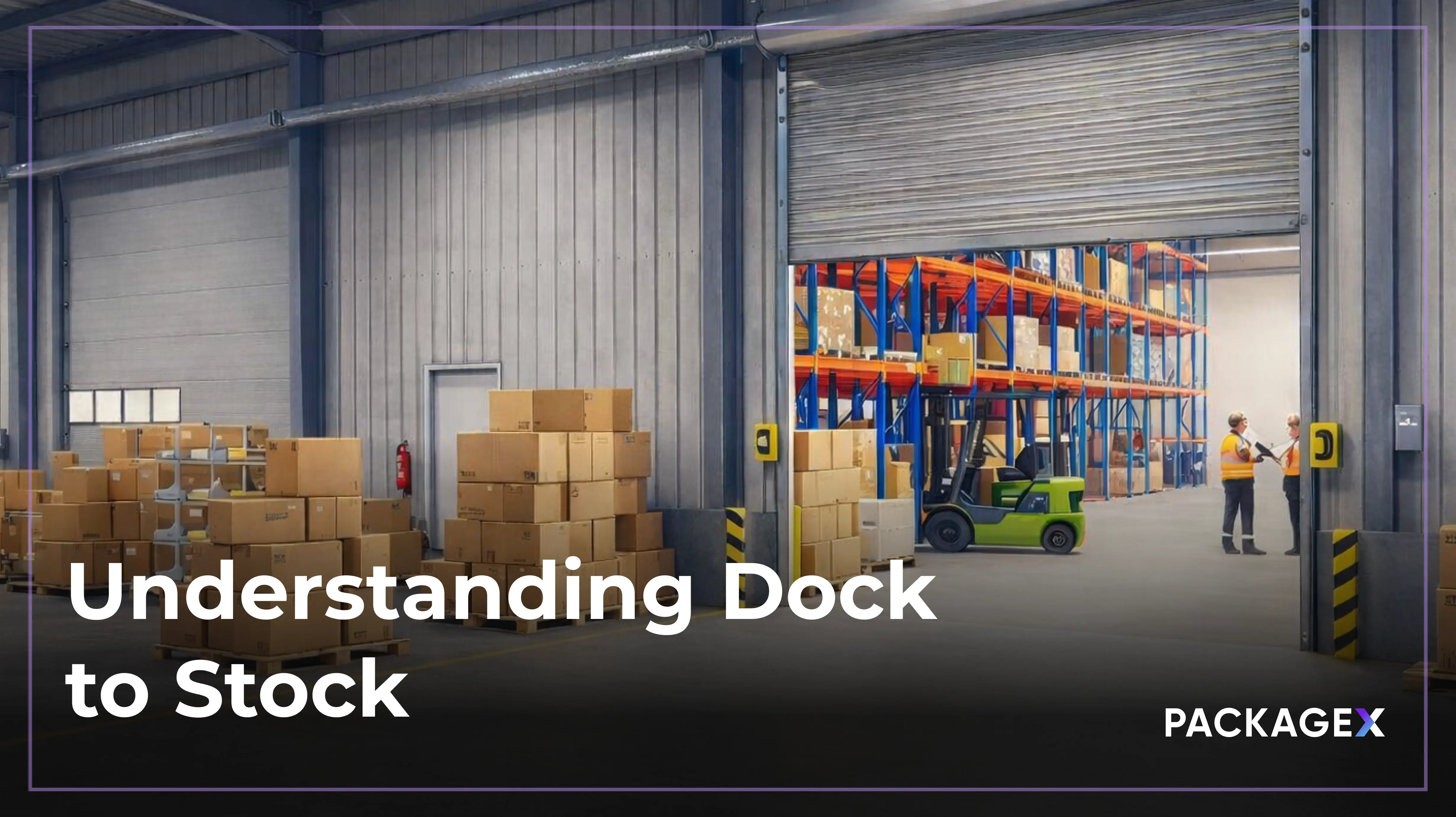The logistics world has changed fast. Not long ago, warehouse teams used clipboards and spreadsheets to track shipments. Today, speed and accuracy decide who stays competitive. As supply chains expand across borders, many businesses face the same hurdles. Problems such as poor visibility, inventory errors, and slow order fulfillment.
These problems cost time, money, and customer trust. That is why many companies now rely on 3PL warehouse management software to restore control and clarity to their operations. The software connects every part of the supply chain and automates manual tasks, saving hours each week.
The 3PL warehouse management software market is growing quickly for good reason. The global warehouse management system (WMS) market is expected to reach USD 9.97 billion by 2030. With a CAGR of 18.26% between 2025 and 2030. This rise shows how 3PL software improves warehouse management. It also helps logistics providers stay efficient and ready for the future.
In this blog, we’ll explore what a 3PL warehouse management system is, how it works, and why it has become an essential tool for modern logistics.
What Is a 3PL Warehouse Management System?
A 3PL warehouse management system is specialized software. It is designed to help third-party logistics providers manage the daily flow of goods for multiple clients. Traditional warehouse tools handle one company’s stock. But warehouse management software for 3PL operations manages multiple customers, products, and locations simultaneously.
Think of it as the digital control center for a logistics business. These 3PL warehouse management software systems track inventory across different warehouses. It automates order fulfillment and keeps clients updated with real-time stock information. Through centralized dashboards and user-based access, managers can see every shipment. While also keeping track of returns and deliveries in one place.
Modern 3PL inventory and warehouse management software often connects with ERP and transport management systems. This makes data flow smoothly across the entire supply chain. For 3PL providers, this kind of third-party logistics management system ensures accuracy. It also provides visibility, and faster decision-making for every client they serve.
How 3PL Warehouse Management Software Works?
3PL warehouse management software makes warehouse operations smoother and more efficient. It handles every step of inventory, from receiving goods to shipping orders. Here’s a simple breakdown:
1. Receiving:
When products arrive, 3PL software records each item using barcode integration. This ensures accurate stock levels and speeds up inbound management. You can instantly see what’s in the warehouse in real time.
2. Storage:
Once scanned, items are assigned storage locations. Advanced systems optimize space using AI-based routing. This reduces retrieval time and helps warehouses store more products without chaos.
3. Picking & Packing:
Order pick and pack automation helps staff quickly gather items for shipment. Some software even suggests the fastest picking routes. Packing instructions are displayed digitally, reducing errors and enabling efficient outbound order preparation.
4. Shipping:
The software tracks shipments and updates order status in real time. It can integrate with TMS, ERP, CRM, and eCommerce platforms to share data across systems, ensuring smooth delivery and accurate customer updates.
Automation Technologies:
- AI routing optimizes picking and shipping paths.
- IoT tracking monitors inventory and shipments in real time.
- API integrations link your warehouse to ERP, CRM, and eCommerce systems for seamless communication.
By combining these features, 3PL warehouse stock management software enhances warehouse operations, reduces errors, and speeds them up. Businesses gain full visibility over stock and orders, helping them scale efficiently without adding extra manual work.
Key Features of Modern 3PL Warehouse Software
Modern 3PL warehouse management software makes running warehouses simpler and more efficient. It helps businesses track inventory, fulfill orders, and manage multiple locations from one platform.
Here are a few key features of the 3PL warehouse system:
Inventory & Stock Tracking
3PL central warehouse management software monitors every item in real time. Barcode scanning and analytics ensure accurate stock levels, support inventory forecasting, and reduce costly stockouts.
Automated Order Fulfillment
Orders are picked, packed, and shipped with minimal manual effort. Multi-client support lets the software manage multiple brands or business units, improving accuracy and speed.
Multi-Warehouse Visibility & Routing
Multi-warehouse 3PL management software displays stock across locations and suggests the best shipping routes. This reduces delays and shipping costs while keeping operations smooth.
Reporting & Dashboards
Real-time dashboards and KPI tracking help managers monitor performance. Billing automation and analytics simplify decision-making and ensure operational transparency.
Easy User Interface
A simple, intuitive 3PL warehouse management software interface allows operators to learn quickly. Visual menus and role-based dashboards minimize errors and training time.
Benefits of 3PL Warehouse Management Software
A 3PL warehouse management software system helps logistics providers run smoothly and more accurately. It delivers key benefits that improve daily operations and long-term performance.
Better Inventory Accuracy and Visibility
Real-time tracking means no more guessing what’s in stock. Barcode scanning and automated updates keep data precise, cutting human error and improving stock control. This real-time data visibility
builds trust and reduces costly mistakes.
Faster Order Turnaround
Automation speeds up order processing and shipping, helping teams fulfill orders quickly and on time. It eliminates delays caused by manual work and boosts overall efficiency.
Reduced Costs and Improved Collaboration
By minimizing errors and labor needs, 3PL systems drive cost reduction. Cloud-based platforms also lower IT expenses. Shared dashboards let clients view their inventory anytime, improving customer satisfaction and teamwork.
Competitive Edge Through Automation
Automating billing, routing, and restocking creates a leaner operation. These 3PL warehouse management software benefits help providers stay agile, efficient, and ahead of competitors.
Custom vs SaaS 3PL Solutions – Which Is Best for You?
Choosing between a custom-built and a SaaS 3PL warehouse management software depends on your business goals, budget, and the speed at which you need results.
Custom 3PL Software
Pros:
- Full control over workflows and reporting
- Built to match your exact warehouse processes
- Strong data ownership and security
Cons:
- High upfront development costs
- Longer setup time
- Requires in-house IT support
Custom systems fit large, complex operations that need precision and control.
SaaS 3PL Software
Pros:
- Quick deployment and low startup costs
- Scales easily across multiple warehouses
- Automatic updates and built-in security
Cons:
- Limited customization options
- Dependent on vendor uptime
Platforms like 3PL warehouse management software lead this category, offering agility and cost efficiency.
Hybrid Approach
- Combines cloud scalability with custom features
- Ideal for gradual system upgrades
- Balances flexibility and performance
For most 3PLs, the best 3PL warehouse management software options are SaaS-based, offering faster ROI, scalability, and simpler maintenance.
Choosing the Right 3PL WMS for Your Business
Selecting the right warehouse management software for 3PL takes more than comparing features. Use this checklist to find a system that truly fits your operation.
1. Start with Usability
If the software isn’t easy to use, it won’t get used. Your team should be able to learn the system quickly without weeks of training. Look for a clean interface, clear navigation, and dashboards that show key data at a glance.
2. Check Integration Capabilities
Modern logistics relies on connected systems. The best multi-warehouse 3PL management software integrates seamlessly with tools such as ERP platforms, accounting systems, and eCommerce stores. When all your data flows in real time, your team spends less time juggling spreadsheets.
3. Look for Customizable Workflows
Every 3PL business runs a little differently. Some handle bulk shipments, while others focus on individual orders or returns. Your WMS should let you tailor workflows to match your exact process.
4. Prioritize Security and Compliance
When managing multiple clients, data security is a must. Choose a system that follows GDPR or ISO data compliance standards. Look for features such as multi-factor authentication, role-based access controls, and regular backups.
5. Evaluate Customer Support and Training
Even the most intuitive software needs a reliable backup. Check if the provider offers live chat, phone, or 24/7 support. Response times matter, especially when an order system goes down during peak hours.
Future of 3PL Warehouse Management Software
The 3PL warehouse management software market is rapidly evolving, driven by smarter, data-focused technologies that boost efficiency and visibility.
AI and Machine Learning for Forecasting
AI and machine learning help 3PLs predict demand more accurately. These systems analyze sales patterns and seasonal data, reducing stockouts and improving inventory planning.
IoT Sensors for Real-Time Tracking
IoT sensors and RFID tags now monitor inventory location and condition around the clock. This visibility prevents losses and ensures clients always know where their goods are.
Robotics in Picking and Sorting
Automated robots handle repetitive picking and sorting tasks, cutting walking time and improving speed without sacrificing accuracy.
Predictive Analytics and Smart Warehousing
Predictive maintenance detects issues before breakdowns, while connected smart systems share live data for smoother, more efficient operations. Together, AI, IoT, and automation are redefining modern 3PL logistics.
Why Leading 3PLs Trust PackageX for Smarter Warehouse Management?
PackageX empowers logistics providers to move beyond manual processes and into a smart ecosystem powered by advanced 3PL warehouse management software systems. It’s designed for speed, accuracy, and scalability. To help 3PL teams streamline operations and stay ready for the future of logistics.
Here’s why top logistics providers choose PackageX to modernize their warehouse management software 3PL operations:
- Unified Operations: Manage inventory, orders, and fulfillment in one smart platform that adapts to your workflow.
- Real-Time Visibility: Get instant insight into stock levels, shipments, and performance metrics, no more guessing or delays.
- Automation That Scales: Reduce manual work with automated picking, tracking, and billing that grows with your business.
- Data-Driven Precision: Use analytics and AI tools to make faster, more confident supply chain decisions.
- Seamless Integration: Connect with existing ERP, TMS, and eCommerce systems effortlessly for a unified data experience.
FAQs
What is a 3PL warehouse management system?
A 3PL warehouse management system is software that helps third-party logistics providers manage multiple clients’ inventory, orders, and fulfillment from one platform. It ensures visibility, accuracy, and control across complex, multi-warehouse operations.
How does 3PL software benefit logistics providers?
It automates warehouse tasks, improves inventory tracking, reduces errors, and boosts efficiency. With real-time data and integrations, logistics providers can optimize workflows, lower costs, and deliver faster, more reliable service.
What’s the difference between 3PL and traditional WMS?
Traditional WMS manages operations for a single business, while 3PL software supports multiple clients with separate data, billing, and reporting. It’s built for scalability, flexibility, and complex third-party logistics needs.
How can small businesses use 3PL warehouse management software effectively?
Small 3PLs can use it to automate repetitive tasks, gain visibility into inventory, and manage multiple clients from one system, helping them compete with larger providers while keeping costs low.



.webp)
